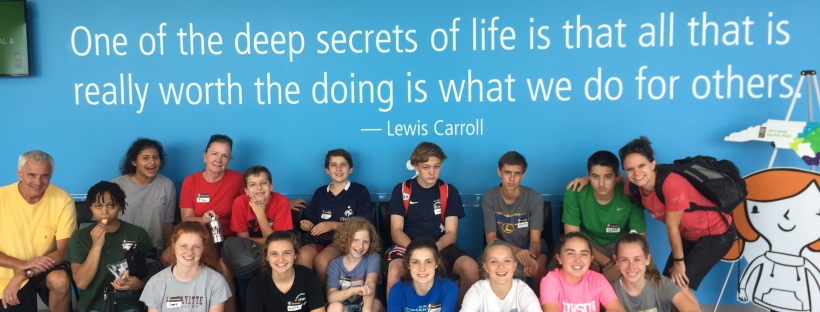Post 4 of 11 in a series on the 10 Principles of Older Adult Ministry (banner image by Raul Petrie from Unsplash)
I work primarily with children and youth and in many churches with the budget, there will be a dedicated person like me on the paid staff. We are there to walk along with the young people as they begin their faith journey. We are there for the emotional, physical, mental, and spiritual needs during those important ages and stages. The things is, this journey is for life. It never ends. We are always learning, exploring, questioning, and needing someone to walk alongside us. As adults we plan a little more of that journey on our own. Gathering for Bible studies, worshipping, involving ourselves in committees with some Pastoral Care to help us when times are tough.
But what about those of us who are getting older and we begin to have varying degrees of mobility and energy? When we cannot engage in the ways we used to, how will the church walk alongside us then?
I know that in early retirement we often get a burst of energy in our congregations. People suddenly have more time to share their talents, attend Bible studies, and serve on committees. Then comes the next stage when mobility, transportation, and even medical issues can limit our involvement or may require some assistance from others.
I worked at a church who was blessed to have a Parish Nurse. I was in awe of the work she did. From taking tours of assisted living facilities with our members, to helping them secure in-home medical equipment, to driving them to doctors appointments, to setting up groups to share their grief, she worked tirelessly to meet the needs of our older members. Still engaging them and connecting them to their beloved community. It was amazing how many people relied on her and grew to love her so. Not unlike my job with youth, our older congregants may need a little more assistance on that faithful journey.
As churches, it is important that we are still meeting those important needs of our members as they step into a new season of their lives. This is why I think intergenerational ministry is so important. It feeds spiritual needs of all ages. It connects us to one another and to God. Faith formation is concerned with all of one’s life, but the needs may not be so different. As you think about your adult educational opportunities for the fall, I encourage you to think about ways you can cross the generations.
- Older members make wonderful Confirmation mentors
- Have your older members share their stories with your youth and children as part of Sunday school
- Create opportunities for all ages to break bread together
- Participate in a service project together
- Have a monthly or quarterly intergenerational Sunday school
- In our church we have 2 weekly caregivers, who members and friends of our church can contact throughout the week for meals, rides, prayer, whatever. It is a great way to connect our congregation while taking care of one another.
I encourage you to create environments where everyone learns from each other. Of course we have things like VBS and Sunday school where we need volunteer teachers. Those are always powerful ways to connect the generations. I also encourage you to create the above opportunities where we gather and are community together. Young learning from older and older learning from our wise young people.

Faith formation is concerned with our entire lives. We are always learning and always growing. There is a woman in my church who plays the glasses. Literally has a set up of wine glasses in different sizes that she plays and it is incredible. My daughter saw this on display one Sunday and was in awe. The woman invited my daughter over to her home to show her how to play. My daughter is a musician and picked it up quickly and the two of them played music all afternoon together. My daughter was taught how to play glasses, but my daughter was also part of this woman’s faith journey. Spending time with someone who missed her own children and grandchildren and was able to share something that gave her so much joy. These holy moments can come where we are forming faith and we don’t even know it.
There are so many ways we can continue to form faith throughout all the ages and it may never involve a Bible or a curriculum. Get creative in connecting with our older members because those may be the ones that surprise you most.





















